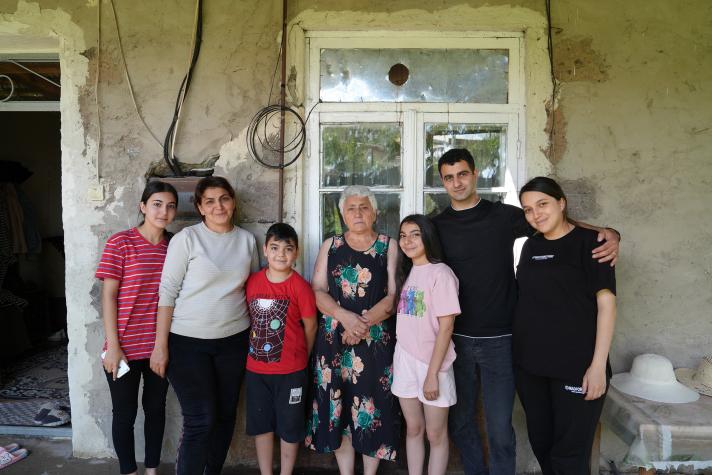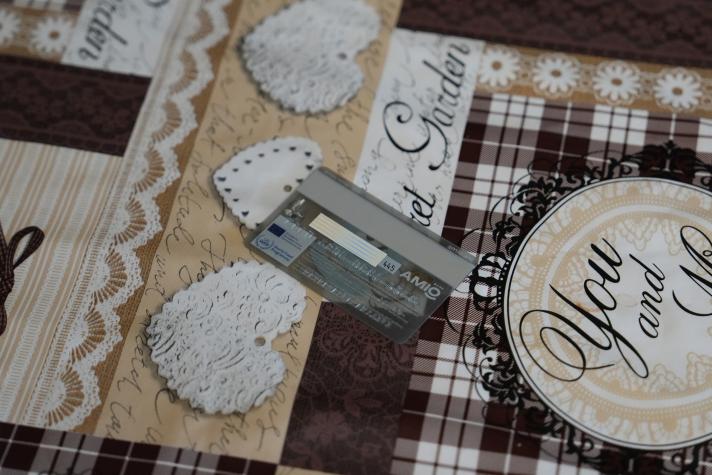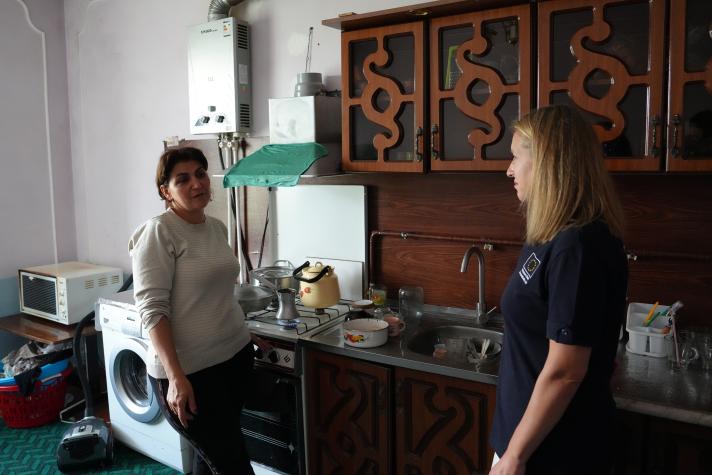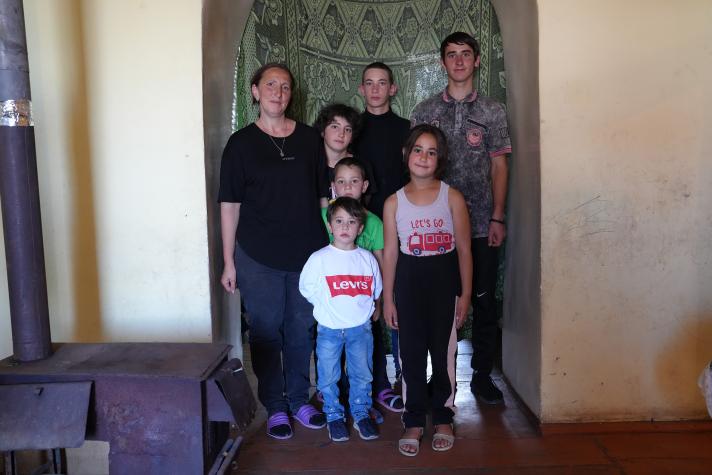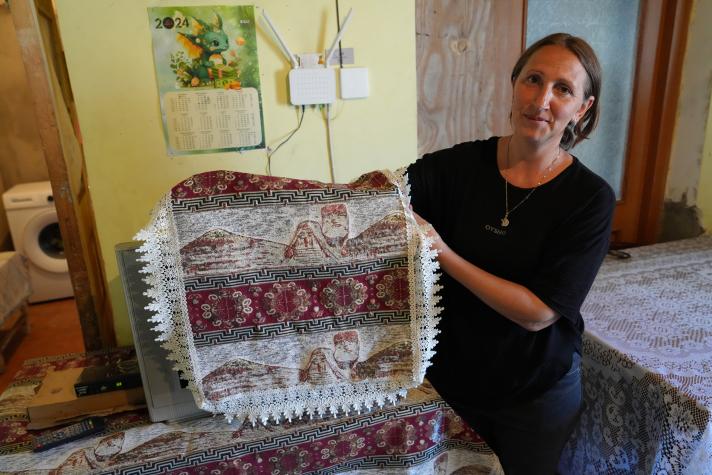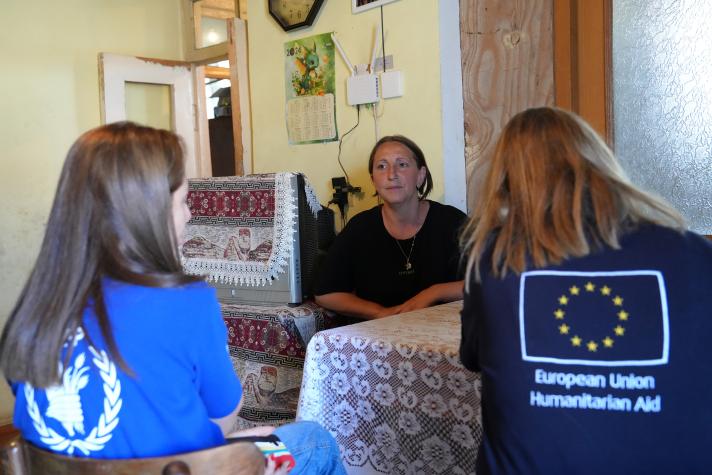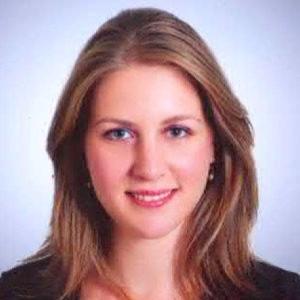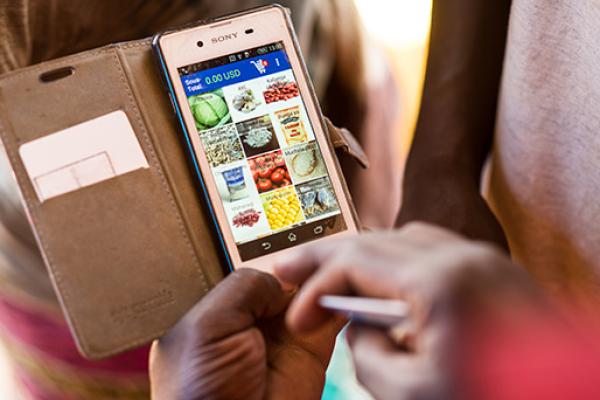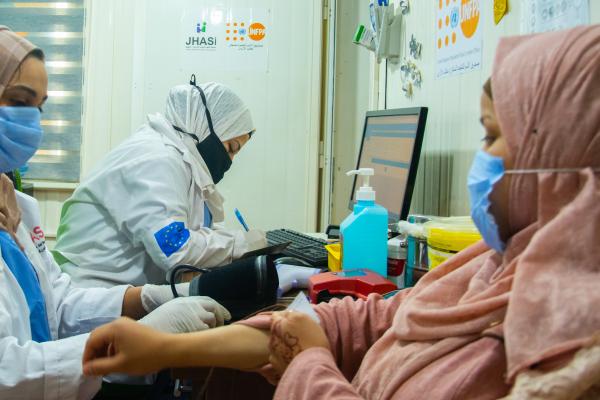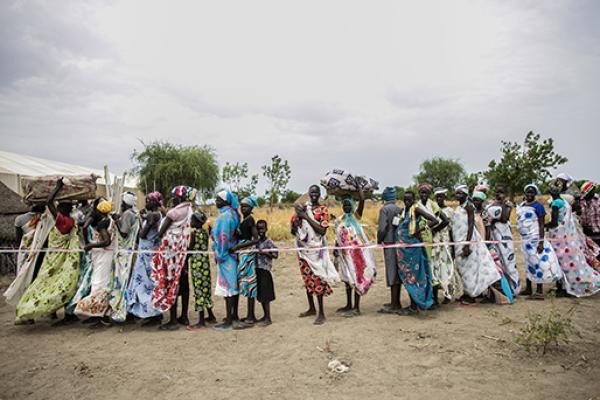Evelina and Alvard. They are 2 mothers who faced the same nightmare during the Nagorno-Karabakh conflict. They ran away for safety twice to the neighbouring Armenia during the conflicts. They lost family members, and they witnessed terrible things when leaving their homes behind. Now, they are trying to build a new life from scratch despite all the challenges and hardships.
A year after the mass exodus of the Armenian population living in Nagorno-Karabakh which started last year, many refugees like Evelina and Alvard have a chance to overcome these difficulties, thanks to the European Union's (EU) humanitarian assistance. In Armenia, the U.N. World Food Programme (a partner of the European Union) provides food cards to refugees to buy basic needs. The WFP also organises psychosocial support sessions to heal their inner wounds and to make them start again.
Evelina, a 43-year-old woman, lives with her 5 children, her husband, mother, father, and son-in-law in Armenia. After leaving everything behind, even her dog, she dreams of returning home 1 day to resume her life like she is used to.
She became emotional while describing how their lives turned upside down in 1 day: “When the conflict started, we stayed in a shelter for 3 days. Then, we reached the capital by car after 4 days. Our car broke down and we took a bus. The bus was jam-packed. There were 22 children, but we only had 2 bottles of water with us.”
Critical for our survival
When they reached Armenia, they felt relieved and moved into a rented house in Vaghashen village.
“We lived in a great house with very good conditions. However, in this house, nothing belongs to me,” she says. She fears that there is no future for them at all. Nonetheless, she has to stand strong for her children and upcoming grandchild.
Receiving food cards brought a critical change in Evelina’s life. More than 2,400 refugees like her receive a total of €97 as a 3-month assistance.
“This card is critical for our survival. We buy almost everything, meat, vegetables, sweets, hygiene stuff. It makes a big difference in our lives,” she says.
A new reality
She finds getting psychosocial support once a week very useful:
“We experience stress and trauma. The children dream of their rooms and friends in our old house. What they are experiencing is very difficult for them. These sessions are useful to allow us to cope with our new reality.”
Sweets for kids
After the displacement, 44-year-old Alvard, a mother of 6, lives with her husband in a Tsonivar village. “I missed everything about Karabakh, I wasn't born there but it was my home. I married there and had my children. We made everything with our own hands” she says.
When the shelling started, they stayed in a shelter for 2 days, waiting in the dark, trying to make bread in an old oven to fill their stomachs. After a long trip full of difficulties, they reached Armenia to find safety. After staying a month in a container camp, they moved to a rented house.
Life is full of vulnerabilities for them. They get water from the next-door neighbour and warm it up for bathing with an old electric rod. The toilet is outside. However, the support from the food card opened a new window for them:
“Thanks to this card, we can buy many things. We were not able to buy sweets for the children, but now we can make them smile.”
The psychological support sessions are useful
Alvard also explains the psychological struggles that her son confronted after the displacement: “Kids are not comfortable under these conditions. My 16-year-old son experienced stress and trauma. After these sessions, he became more open to conversation. Before he didn't talk to anyone, he had no friends at school. Now he is much better. The sessions are useful.”

